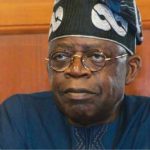The National Bureau of Statistics (NBS) reports that African investors, excluding Nigeria, accounted for 22.76% of Nigeria’s foreign capital inflows in Q3 2024, contributing $285.11 million. This marks a significant role for African countries in Nigeria’s capital importation landscape, though it reflects a decline of 43.73% from $506.68 million in Q2 2024 and a 16.77% drop compared to $342.55 million in Q3 2023.
Mauritius and South Africa were the leading African contributors, though their performances diverged. Mauritius brought in $97.63 million, a steep fall of 61.05% from the previous quarter’s $250.70 million and a 56.85% decline year-on-year. Meanwhile, South Africa contributed $185.03 million, showing a 59.02% increase compared to $116.37 million in Q3 2023 but a 27.73% decline from $255.98 million in Q2 2024. Ghana emerged with $2.35 million, signaling renewed interest, while Morocco remained a minor player with $0.10 million.
In contrast, Nigerian investors showed remarkable growth, with foreign capital inflows rising to $10.84 million, a 261.33% year-on-year increase from $3.00 million in Q3 2023 and a 198.63% surge from $3.63 million in Q2 2024.
Africa’s performance was overshadowed by significant contributions from Europe, North America, and Asia. Europe remained dominant, driven by the United Kingdom, which contributed $502.60 million despite a drop from $1.12 billion in Q2 2024, and the Netherlands, which added $121.92 million. North America also recorded gains, with the United States increasing its contribution to $163.86 million, up from $81.58 million in Q2 2024. Meanwhile, Asia saw notable inflows from Saudi Arabia at $28.01 million, China at $9.58 million, and Singapore at $5.63 million, though all experienced declines compared to the previous quarter.
Overall, Nigeria’s total foreign capital inflow in Q3 2024 fell sharply to $1.25 billion, a 51.89% decrease from $2.60 billion in Q2 2024, despite an annual increase of 91.35%. Africa’s reduced inflows, particularly from Mauritius and South Africa, dampened its contribution, while Europe and North America solidified their positions as dominant sources. The surge in contributions from Nigerian investors suggests growing confidence and a potential shift in Nigeria’s capital inflow dynamics.










